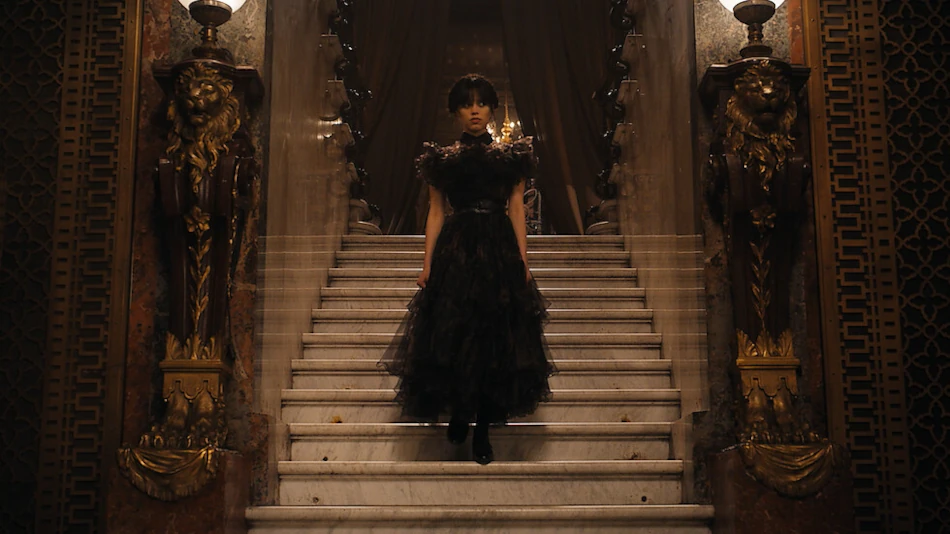Many people wonder how actors get cast in movies and TV shows. The casting process is long, and actors are only a small part of the equation.
Casting Directors will advertise roles to talent agents, who will submit actors that fit the breakdown. The CD will then choose actors to audition for the role and pick out the best ones to show the Director and Producers, who will then decide who gets the part.
The casting process may be different depending on the project and people involved, although the process that I will be going over in this article is by far the industry standard in terms of casting movies and TV shows.
Table of Contents
The Producer Hires a Casting Director
Once a script has been written, a casting director will be hired to find the best people for the movie or TV show. The Casting Director will then read the script and highlight every single character in the script. They will then create breakdowns for each character.
A character breakdown is a description that identifies the important attributes of a character, often used to cast movies, plays and TV shows. These breakdowns include information such as physical appearances, skills and personality traits.
Character breakdowns often include things like age, race, height, or any potential physical attributes such as being an amputee etc. They may also include any important abilities that the character may have. For example, playing a musical instrument, skateboarding or anything that may be essential or beneficial in a potential actor. They will also include each characters’ personality traits and a short character description.
In some situations, the CD may communicate with the Director on things that may not be in the script but are important in potential actors.
The Casting Director Advertises the Roles

Once the Casting Director has created breakdowns for each character, they must now identify potential actors for each part. They will often communicate with the Director who may have a list of actors that they would like to bring in to audition.
If the Casting Director has initial ideas for actors to play certain parts, they will directly contact their agents asking them to audition for the part. This is why it is very important to develop relationships with Casting Directors and Directors, you’ll be at the forefront of their minds and may get more opportunities to audition.
The Casting Director will then release the breakdowns to agencies. Usually, larger talent agencies will get sent the bigger roles, as these agencies represent very well known and experienced actors. These roles then get submitted to smaller agencies and occasionally get sent out as open casting calls for more specific traits, such as “elderly actor that can do a backflip on a unicycle.” Now that’s something I’d love to see!
Agents Submit Actors That Fit The Roles
Once the agents receive these breakdowns, they will submit actors that fit the roles. Often a talent agent will represent multiple people that fit a single character breakdown. The agent will then submit the actors’ headshot, showreel and CV.
As an actor, you won’t know that your agent has submitted you for a role as there’s no guarantee that you’ll receive an audition. This submission process is simply for the casting director to get a general overview of actors that fit the description. Agents submit their actors to hundreds of projects, but they may only receive auditions for a few of them.
The Casting Director Selects Actors to Audition
Once agents submit actors for the role, the Casting Director must now look through hundreds of headshots to decide which actors they want to see audition. They will cut out a few that don’t fit the description, and will then look more into depth into each actor.
They will often take a look at showreels and other material submitted and decide who they’d like to see read for the role.
Once the Casting Director has decided who they’d like to see read for the role, they must contact the actors’ agent to offer the actor an audition. They will provide any information that’s able to be shared without giving too much away, such as character descriptions, a brief plot synopsis, the audition sides and any information on the audition format and deadline.
As you can imagine, castings are often very careful with the information they share. The casting team for the next Marvel movie doesn’t want to give away the full plot to every actor that auditions for a role. Therefore actors will often only receive a short scene sometimes consisting of just a few lines.
READ: The Actors Guide To Audition Sides
The Actor Auditions For The Role

Once the agent has received the audition request they will now notify the actor that they have received an audition. The agent will forward any information provided to the actor and it’s now the actors’ job to do what they do best, act.
Getting to this point is great for any actor. Whether you get the role or not, the Casting Director asked you to audition because they believe you could be right for the role. Many actors don’t even get to this point, so be proud! Also keep in mind that many actors have points where they audition for 20, 30 or even more projects before they land a single job. That’s just the way the industry works.
Now it’s time for the actor to prepare their audition by learning the lines, making strong character choices and everything that they have trained and practiced to do as an actor. Auditions can be very short notice, and it’s not unheard of to get an audition request the day before the audition. Although most auditions will give a few days for the deadline.
Actors will usually receive one of three types of auditions:
In Person Auditions
If an actor receives an in-person audition, they will be given a location, date and time for their appointment and the actor will travel to the audition location, meet the Casting Director and occasionally a Director and Producer. The actor will then audition for the panel and then leave.
Actors don’t have to engage in too much conversation with the Casting Director if they’d prefer not to or if they’re nervous. But it’s usually a good idea.
If an actor mentions that they’ve been preparing for a marathon and the Casting Director is interested or also enjoys running, they may have a really cool conversation and make a lasting impression. Even if you don’t get the part, you will be more likely to be remembered for other parts in the future.
Self Tape Auditions
Self tape auditions are quickly becoming a favourite for many Casting Directors as they get to see more actors. Actors also don’t have to pay for travel costs to go to an audition that they may not book.
Self tape auditions are video auditions that are then sent to the Casting Director. Some actors dislike self tapes as they prefer to audition with the Casting Director directly, as they can use their charisma and develop relationships whether they land the role or not.
Whereas some actors prefer self tape auditions as they can do as many takes as they like and send the Casting Director the best one.
Smaller roles are often cast directly from self tapes, without the Casting Director ever meeting the actor. This is more common on TV shows with quick turnaround times. Although bigger roles will almost always have callbacks that are done in person or via video call, where the self tape audition is used as a screening process.
Video Call Auditions
A video call audition is an acting audition that is done using Zoom, Google Meetings, Microsoft Teams or other video conferencing software.
This audition method allows the benefits of an in person audition, where the actor gets to directly communicate and develop a relationship with the Casting Director, but also means that the actor doesn’t have to travel to an audition. We all know that acting isn’t the most financially stable, so any chance to save money is a bonus!
This option isn’t as common as the other two, as they’re usually used more for callbacks. But it’s definitely very common.
The Casting Director Picks The Best Ones
After auditioning all the actors, the Casting Director will decide on a few options that they think fit the role the best. This usually has nothing to do with who is the best actor but is simply about who represents the character in an interesting or truthful way.
No matter how good of an actor you are, you’re probably not the right fit for every role in existence. Yes, I know, I may play an awesome Juliet, but I’m sure there are many people out there that will play the role better than I. Maybe it’s something to do with the beard, I’m not sure.
The Director Makes The Final Decision

Once the Casting Director has picked a few of the best auditions, they will send the tapes to the Director and Producers. They will then make the final decisions on who gets the job.
A good Casting Director will be able to narrow the search down to a few really solid options for the Director. Although in the case that the Director doesn’t like any of the roles, they will then go through the other tapes, or even widen the search to open casting calls.
The Actor is Then Offered The Role
Once the actor has been decided on, it’s now time to give the good news! The Casting Director will then contact the actors agent to let them know that they’d like to offer them the role.
This is when the actor will receive that long-awaited phone call from their agent, letting them know that they’ve been offered the role.
If the actor hasn’t been successful in the audition, sometimes the Casting team will let you know, but often they’re so busy that they don’t have time. So if it’s been a few weeks and you’ve heard nothing, just presume it was a no.









One Response
I realy wanted to be in a film or movie even though I am 8 years old.